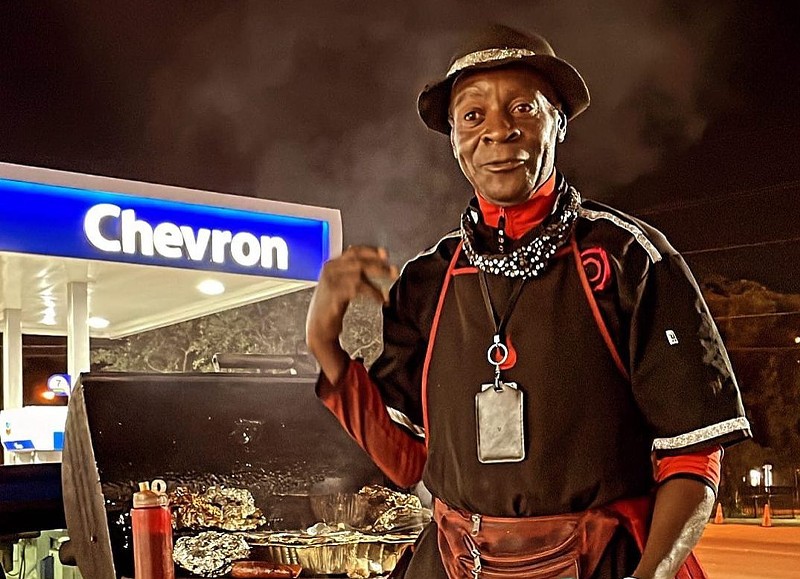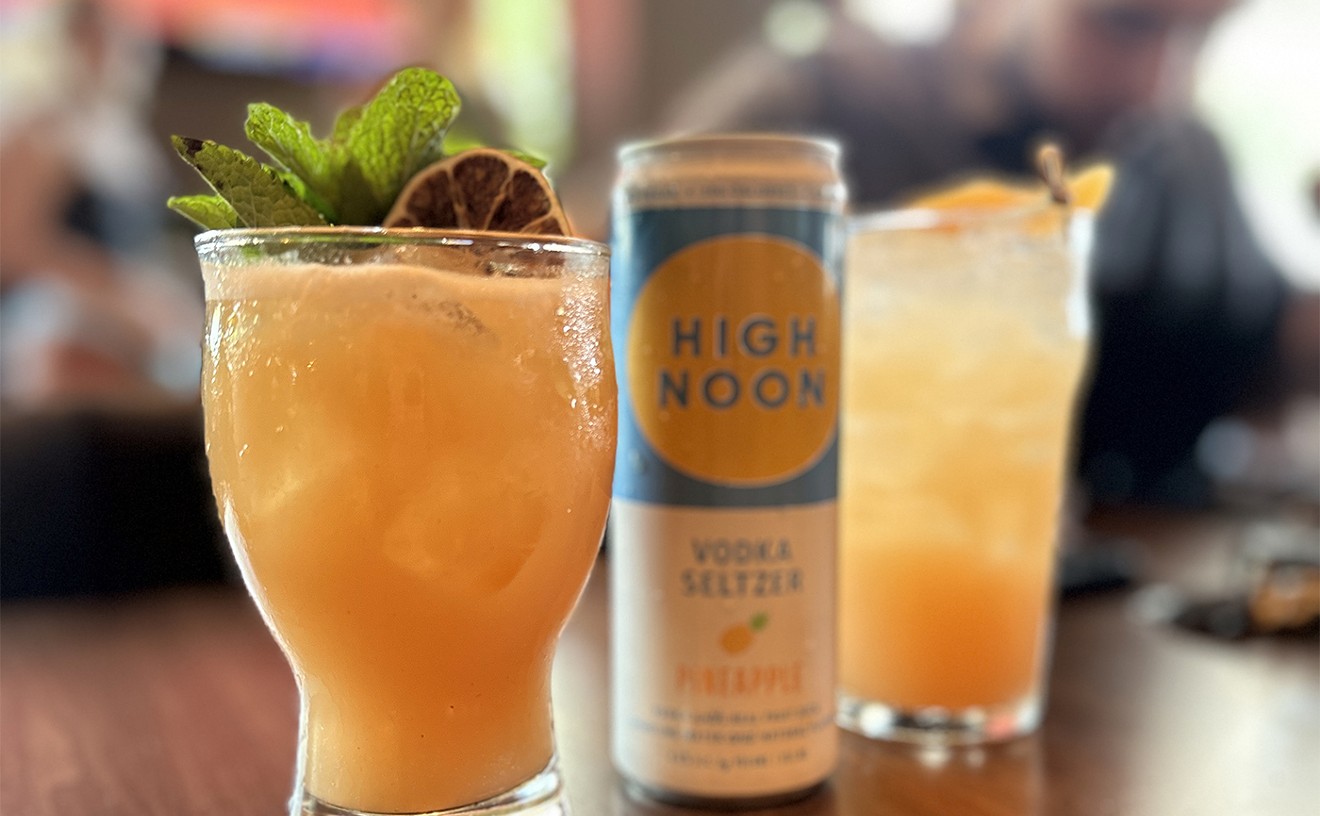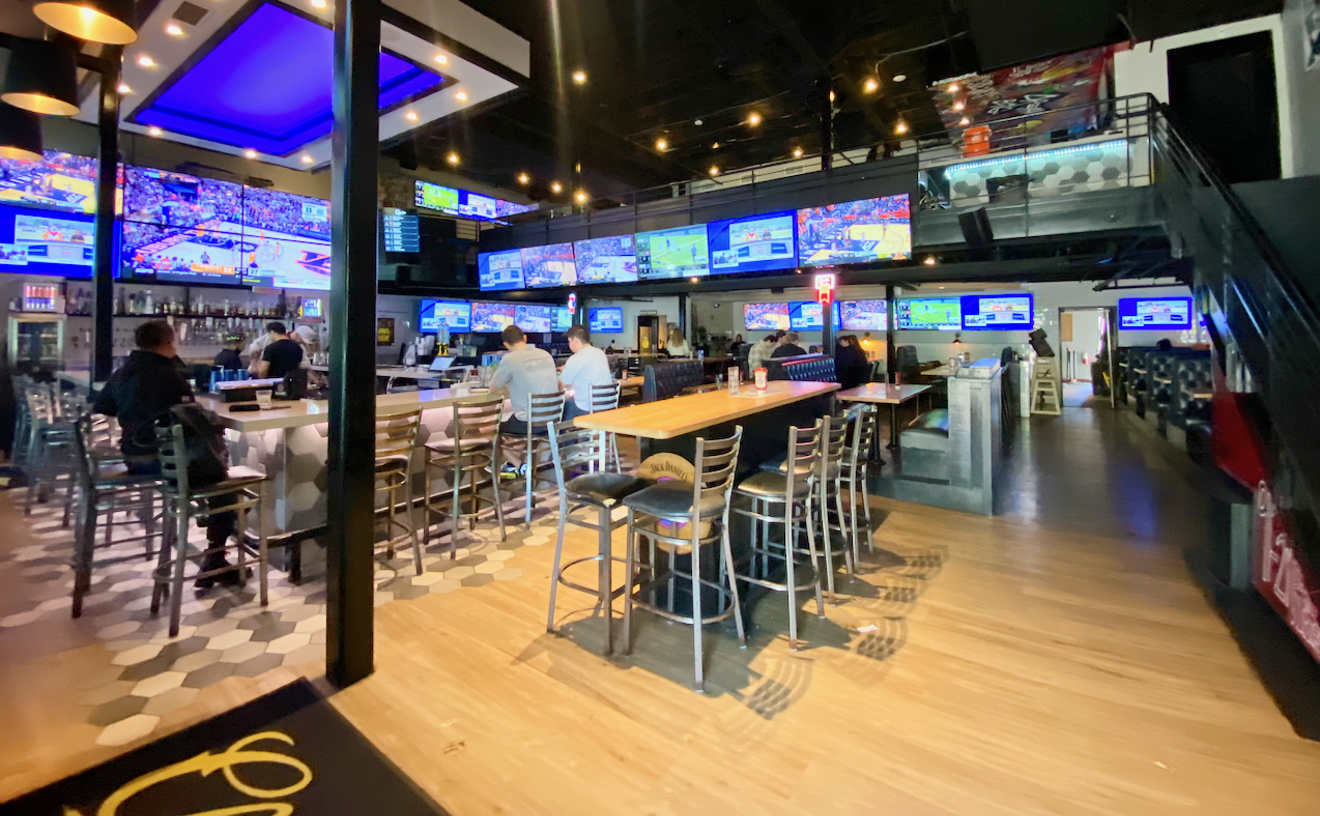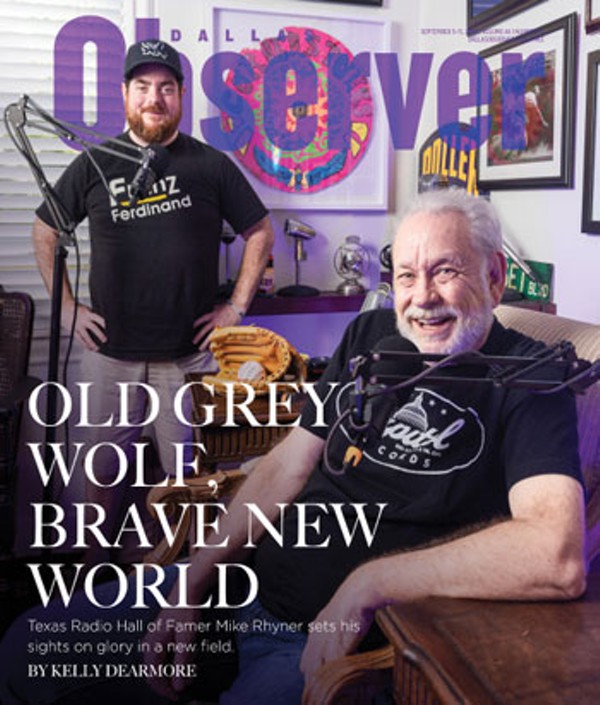Montis James, a 63-year-old barbecue vendor who sells food out of his truck, spent a week locked up after a collision in Deep Ellum in late March.
“It wasn’t that bad,” he told the Observer of his time incarcerated. “It’s what came after that’s knocked me out.”
James was pulling out of the parking lot of Charlie’s Star Lounge when a drunk man latched onto his vehicle. It was around midnight, and James says he didn’t feel or see anything, even when the man fell to the pavement. He returned to the scene because a friend called him, then he was arrested because, as the police said, “the driver of the truck left the location without rendering aid to the victim.”
“I almost died,” says the victim, who we’ll call Brian. “But it was all my fault.”
Brian says he filed an affidavit of non-prosecution with the district attorney’s office (which declined to comment). Even still, James’ truck and pit smoker are still under lock and key at the police department, and James says his court-appointed defense attorney (who didn’t respond to requests for comment) has been of little help. Likewise, the police department won’t give him any information on the status of his case.
“The investigation is ongoing,” a spokesperson told the Observer on Sept. 2, “and there is no additional information.”
Meanwhile, James says the last six months have been “a nightmare.” His truck was his business; without it, he is now facing homelessness. His ongoing plight is a maddening tale of red tape with no clear end in sight; meanwhile, his fans and patrons miss him.
“He showed up at Charlie’s one time to hang out and take some pictures, and it was good to see him,” says Dana Gorham, who has been giving James advice throughout his ordeal. “But when I talked to him a few days later, he just seemed sad, like he was maybe defeated a little bit.”
James has been selling food for nearly 25 years. He was best known for his work in Deep Ellum, where he’d don his sharp black hat, sell some barbecue and go dancing in places like Charlie’s whenever he took a break. He talks about Deep Ellum as if it’s the apex of a long career; after a lot of traveling and working in different places, he’d found his people.
Corey Howe, who co-owns Charlie’s, called James “a really great resource” in an interview in April, adding that his truck was likely “incapable of speeding.”
“I’m not even sure it’s running on all cylinders,” Howe said.
Prior to the arrest, James had been putting together money for a place where he could both live and cook. It would have a kitchen where people could stop by and buy some fresh-smoked barbecue. But in the weeks after a family member bailed him out of jail, James estimates he lost roughly $20,000 in potential sales. He was staying with a friend, but he knew it was a temporary set-up. The friend had limited space and family moving in.
As summer arrived, James put together a few online crowdfunding campaigns. When they failed to gain much traction, he started selling what he could: furniture, a lamp, a smoker. He asked around for legal advice, eventually getting in touch with Victor Lander, a former municipal judge, who shared what knowledge he could.
In an interview with the Observer, Lander called the arrest “bizarre,” but added that it’s not necessarily abnormal that the police investigation has lasted six months.
“If we hit a year, then that’s a little unusual,” he says. He also noted that the affidavit of non-prosecution should, in theory, be “very persuasive,” but first James’ lawyer must file a writ of habeas corpus. At that point, he and his lawyer would appear before a judge in hopes of getting the charges dropped and his truck back. Yet that presents another challenge: At the time of his arrest, James’ license and insurance were expired.
He also didn’t have the necessary permit to sell food out of his truck. The lack of these documents “could certainly play a factor,” Lander says, in the truck not being returned to him or the charges not being dropped.
Permit Hurdles
It’s not unusual for vendors like James to forgo the permitting process, and multiple business owners interviewed for this story say securing the right permits can be complex and cost-prohibitive. Cindy Puente and her husband, Armando, organize major festivals in Oak Cliff throughout the year, including an event for Dia de los Muertos. Each year, they compile a list of vendors who want to appear at the festival, but several inevitably back out.
“People get intimidated by the forms and don’t want to work with the city,” Cindy says. “I have to guide them through the process, but some would rather just not come when they realize the requirements.”
The couple say the new process for mobile food permits has, in some ways, made things easier for vendors like James: As of last year, these vendors need only one permit to operate their business. However, they need that permit for each county to which they travel or pop up.
“Not only are you paying the place you’re in partnership with, but every county gets to capitalize off these permits,” says Alyssa Azcarate, who started the mobile, Mexican-inspired coffee shop Cafe Teatro in 2023.
“Nobody gives you a book on how to run a pop-up,” she says. “It’s all experience.”
Some, like food vendor Chris Arbukle, who has been in the Dallas service industry for more than 20 year, are adamant about skipping the permitting process altogether. Like James, Arbukle caters to the late-night crowd in Deep Ellum. He works off of a folding table with an electric flattop — a set-up that necessitates multiple permits — and he says he has been shut down multiple times by the code compliance department.
“The health permitting process is impossible, and because what I do is illegal, getting help from the police is impossible, too,” he says.
James says he never thought much about getting permits for his business; he’s been doing it for so long, and it was never an issue. When talking to the Observer, he was often genial, throwing around words like “buddy” and talking about his future plans for his business. But recently, he went to the hospital to seek help for shoulder pain from a recent accident on a rented scooter.
As the doctors evaluated him, James says he mentioned that he was depressed. The hospital decided to keep him for at least a week, and that’s where he was during his most recent interview. Once he gets out, he says he is headed to Austin Street Shelter.
“If I could get my truck back,” he says, “that would bring my life back.”












